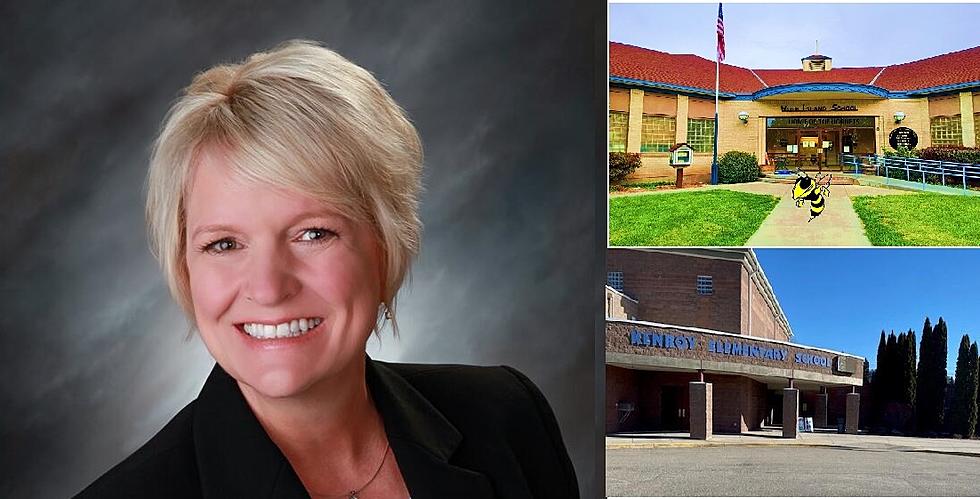
Constitution Week is September 17th-23rd How Well Do You Know It?
Sunday, September 17, 2023 is Constitution Day, also known as Constitution and Citizenship Day, honoring the document that guarantees essential rights in the United States. This year commemorates the 236th Anniversary of the signing of the Constitution. Constitution Week runs September 17th through 23rd.
During the period, local governments will be reading Constitution Week Proclamations.
How informed are you about what is in the U.S. Constitution?
Carrie Byrd, an AP US government and history teacher is chair for Constitution Week for the John Kendrick Chapter, National Society Daughters of the American Revolution (DAR)
Byrd urges everyone to learn more about what is and is not in the Constitution She points out the document is only 4,400 words in length and while portions can be a bit dry, she suggests skipping over segments it if you are getting bogged down. The important thing is to become more familiar with the document as a whole.
So how familiar are you with the Constitution? Here are a few interesting or topical facts to consider;
- The Constitution was written to protect every American from the abuse of power by government. The Fifth Amendment states that “No person shall be… deprived of life, liberty, or property without due process of law” and it protects us from double jeopardy and incrimination. However, the phrases “innocent until proven guilty” and “presumption of innocence” are not found in the 5th Amendment nor in any part of the Constitution. These phrases are derived from English law and are part of our system and considered common law today.
- The U.S. Constitution at 4,440 words, is the oldest and shortest written constitution of any government in the world. John Adams, one of the founding fathers, referred to the Constitution as “the greatest single effort of national deliberation that the world has ever seen” and George Washington, our first President, wrote to the Marquis de Lafayette, the French General who had fought for American freedom during the Revolutionary War, that (the Constitution) “appears to me, then, little short of a miracle.”
- You might have heard the phrase, “That’s unconstitutional” or “That’s my constitutional right!" Many times Americans believe that sayings and phrases are in our Constitution, but they really aren’t.
- Did you know that nowhere in the Constitution does it say, “It’s a free country”? Amendment 1 of the Constitution does NOT include the words “freedom of expression” but over time it has been ruled to include limits to the freedom of speech/press/assembly for defamation, perjury, contempt of court, and hate speech, size of public demonstrations, trade secrets, noise pollution, classified information and treason.
- “We the people of the United States, in order to form a more perfect Union, establish justice, insure domestic tranquility, provide for the common defense, promote the general welfare, and secure the Blessings of Liberty to ourselves and our Posterity, do ordain and establish this Constitution for the United States of America.” These words, written 235 years ago, are the Preamble to our Constitution. Read beyond the Preamble to understand the structure of the three branches of our representative government. Study the Bill of Rights (the first 10 Amendments) and the other seventeen.
- The U.S. Constitution is the oldest constitution still in active use in the world today and is the basic document of our republic, protecting the individual liberties of all citizens through written law. Did you know that you cannot be denied the right to vote because of race or gender? But the Constitution never clearly ensures us the “right to vote.” The 26th Amendment requires that 18 year-olds must be able to vote; however, states can allow persons younger than 18 to vote if they choose. The qualifications for voters are left to the states, as long as they do not conflict with anything in the Constitution. In some states, felons who are in prison or on probation are denied the right to vote.
- Did you know that the only place in the Constitution that “Lord” or any reference to God is where the date is written: Seventeenth Day of September in the Year of our Lord one thousand seven hundred and eighty seven”? Did you know that “We hold these truths to be self-evident, that all men are created equal” and “Life, Liberty, and the Pursuit of Happiness” are not in the Constitution, but both phrases are in the Declaration of Independence? Too, this quote, “Of the people, by the people, and for the people” is in neither the Constitution nor the Declaration. Abraham Lincoln delivered those words in the Gettysburg Address.
- American colonists fought, sacrificed, and died to establish and preserve the freedoms now guaranteed to us by the Constitution of the United States. The right to privacy has come to the public’s attention through various controversial Supreme Court rulings. Privacy is not specifically mentioned in the Constitution, but over the years, the Supreme Court has made decisions that have established that the right to privacy is a basic human right and as such is protected by virtue of the 9th Amendment.
- Did you know that Inauguration Day is set in the 20th Amendment? The Presidential and Vice Presidential terms end and the next term begins on January 20 following an election. For Senators and Representatives, terms end and begin on January 3 following an election. The time between the election and Inauguration Day is known as the Lame Duck period, particularly if the President was not reelected.
- Did you know that the Constitution does not give the right to have cases heard by jury of “my” peers? The Constitution does not have the words “separation of church and state” anywhere in it. The only crime that is defined in the Constitution is treason. Specifically, it is adhering to or giving comfort to the enemies of the United States. The Constitution neither prohibits nor encourages that the President and the Vice President be from the same party.
If a lot of these details or facts were surprising, Byrd suggests Constitution Week is a great opportunity to become better informed and responsible citizens. She hopes everyone will read the Constitution, study the Amendments and Bill of Rights.

More From NewsRadio 560 KPQ









